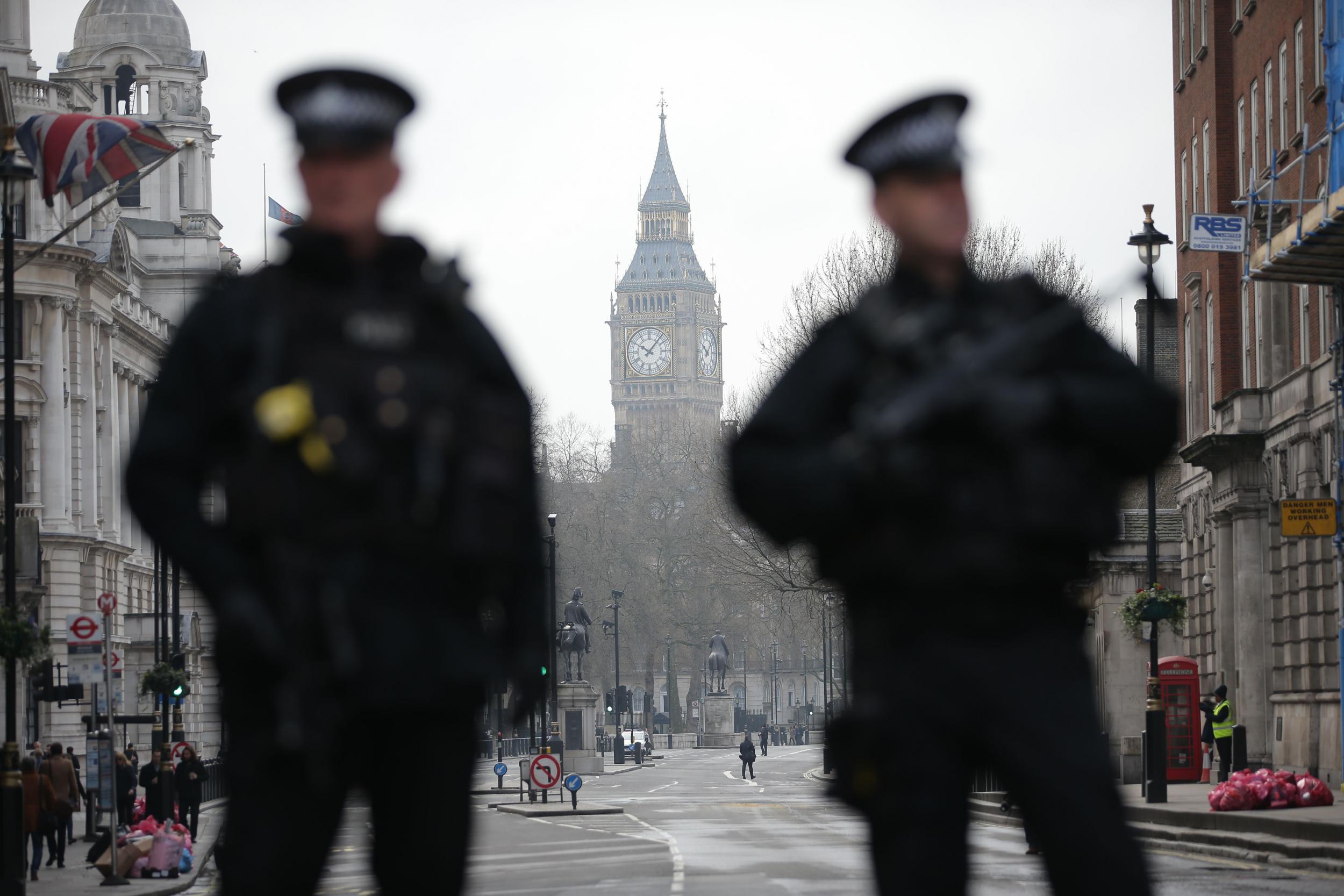‘Devious’ man jailed for trying to frame landlord’s partner over Westminster terror attack
Gerald Banyard fled to Scotland before being convicted of perverting the course of justice

A man has been jailed for trying to frame an innocent person over the Westminster terror attack.
Gerald Banyard, 67, fed police falsified information claiming a second man was involved in Khalid Masood’s deadly car and knife rampage “out of spite for his former landlord”.
Masood killed four people on Westminster Bridge and stabbed PC Keith Palmer to death outside Parliament, before being shot dead by police in the first UK terror attack claimed by Isis.
Banyard, of Whalley in Lancashire, sent handwritten notes to police days after the attack on 22 March 2017 claiming Masood had been in contact with his landlord’s partner.
Southwark Crown Court heard resources were diverted from the terror investigation because of the false claims, which wasted 260 police man hours.
Barnyard denied writing the notes, and claimed he himself had been framed by a US-based actor he knew from drama school, but was convicted of two counts of perverting the course of justice.
Police launched a manhunt after he failed to attend a verdict hearing on 11 May, and Banyard was arrested in Scotland three days later.
The court heard Banyard was found at a hotel in Glasgow with more than £50,000 and $8,350 (£5,900) in cash.
He was present for his sentencing on Thursday, when he was jailed for three years for perverting the course of justice and two months for breaching bail.
Judge Christopher Hehir called him a “truly devious and manipulative man”.
“Your conduct involved baseless allegations of complicity in an act of mass murder,” he added. ”It is difficult to imagine a more vile imputation.“
The court heard Banyard had lived in a flat owned by his victim's partner, when a dispute over a faulty boiler culminated in the man kicking the front door in.
“You wanted revenge and you were quite determined to serve it cold,“ the judge told Banyard. “I am quite sure you were out to ruin his life completely if you possibly could. It was not for want of trying that you did not succeed in that.”

The judge gave Banyard an indefinite restraining order preventing him from contacting his former landlord, her partner, or the police officers involved in the investigation.
Commander Richard Smith, head of Scotland Yard’s Counter Terrorism Command, said that at the time Banyard sent his notes, officers were urgently investigating whether Masood had plotted with others, and if there was any further risk to the public.
“Banyard looked to exploit an extremely tragic and serious situation to try and settle what was a private dispute with his landlord,” he added.
“His actions meant that counter-terrorism resources were diverted to investigate what turned out to be a completely fabricated story, which implicated an innocent man. His actions were disgraceful and completely reckless.”
The probe started on 30 March 2017, eight days after the attack, when a package was delivered to the front counter of Brighton police station.
It claimed to be from an American tourist called Kevin, who enclosed a note supposedly found in his hotel room.
“Khalid, stick a cop for the old days,” it read and was signed with the name and mobile phone number of Banyard’s landlord’s partner.

Two days later, on 1 April 2017, another letter was sent marked for the “very, very urgent” attention of counter-terror police investigating the Westminster attack.
It contained a further handwritten note, which stated that the same man had been friends with the terrorist “for years”, and again contained his phone number.
Detectives identified and contacted the man, but Scotland Yard said it “became apparent that he had never been in contact with the attacker”.
When asked if anyone had a reason to falsely accuse him, the man said Banyard had been involved in a dispute with his partner over a property rented from her.
In August 2018, officers searched Banyard’s home in Lancashire and seized documents that showed his handwriting to be the same, and that he lived in the area where the letters were posted.



